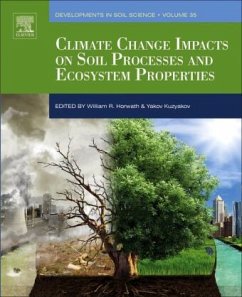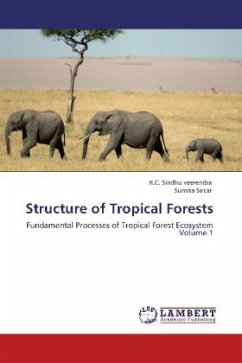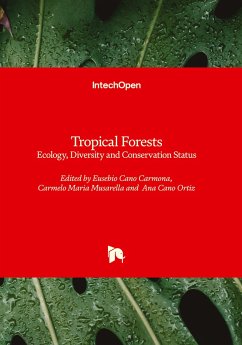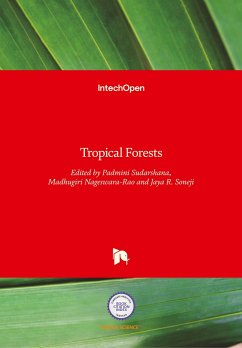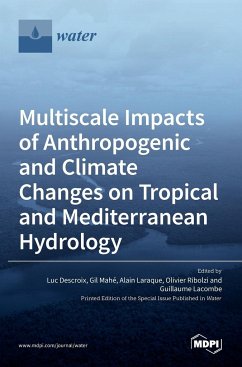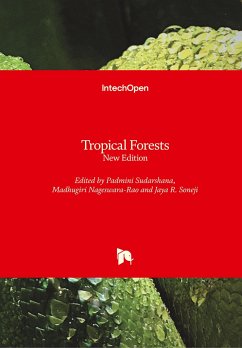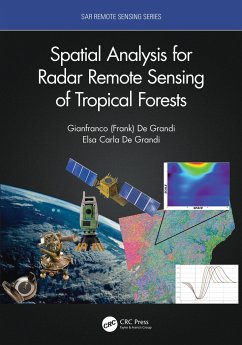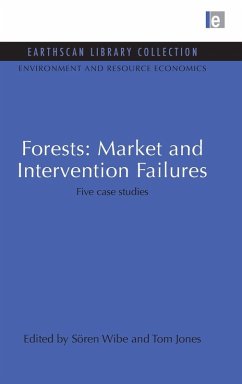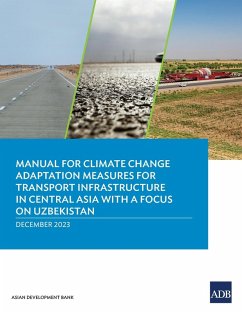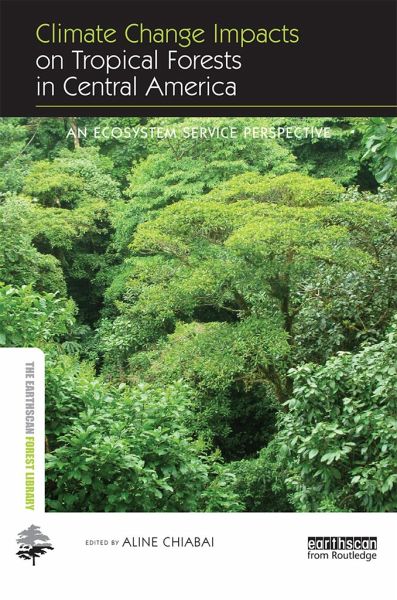
Climate Change Impacts on Tropical Forests in Central America
An ecosystem service perspective
Herausgeber: Chiabai, Aline
Versandkostenfrei!
Versandfertig in 1-2 Wochen
194,99 €
inkl. MwSt.
Weitere Ausgaben:

PAYBACK Punkte
97 °P sammeln!
Climate change is expected to be the primary cause for biodiversity loss and changes in ecosystem services on a global scale, with increased risk of extinction for many plant and animal species. The crucial issue under debate is the impact on the welfare of current and future population, and the role of humans in the exploitation of natural resources. This is of particular importance in Central America where, on one hand, a major share of the world's biodiversity capital is concentrated and, on the other hand, ecological biodiversity loss strongly impacts socio-economic vulnerability. This book will address the impacts of climate change on tropical forest ecosystems and related services in this important region, and will assess the projected economic costs if no policy action is taken by the end of the century. This innovative collection utilises both theoretical approaches and empirical results to provide a conceptual framework for an integrated analysis of climate change impacts on forest ecosystems and related economic effects, offering insight into the complex relationship between ecosystem services and benefits to humans. This important contribution to climate change and forestry studies provides invaluable reading for students and scholars in the fields of environmental and ecological economics, environmental science and forestry, natural resource management, agriculture and climate change.
The loss of biodiversity is a major environmental problem in nearly every terrestrial ecosystem on Earth. This loss is accelerating driven by climate change, as well as by other causes including agricultural exploitation, fragmentation and degradation triggered by land use changes. The crucial issue under debate is the impact on the welfare of current and future population, and the role of humans in the exploitation of natural resources. This is of particular importance in Central America, which it is amongst the richest and most threatened biodiversity regions on the Earth, and where the loss of ecosystems strongly affects its socio-economic vulnerability. This book addresses the impacts of climate and land-use change on tropical forest ecosystems in this important region, and assesses the expected economic costs if no policy action is taken, under different future scenarios and for different geographical scales. This innovative collection utilises both theoretical approaches and empirical results to provide a conceptual framework for an integrated analysis of climate and land-use change impacts on forest ecosystems and related economic effects, offering insight into the complex relationship between ecosystems and benefits to humans. This important contribution to forest ecosystems and climate change provides invaluable reading for students and scholars in the fields of environmental and ecological economics, environmental science and forestry, natural resource management, agriculture and climate change.




